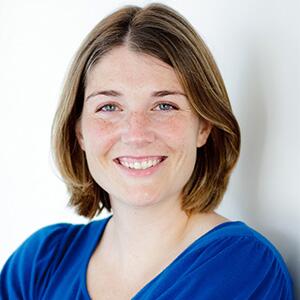Counterfeit Check Scams Are Still Snaring Lawyers
Over the past several years, Lawyers Mutual has repeatedly warned attorneys about wire fraud scams that can result in the diversion of funds to a hacker. While wire fraud remains an active and significant risk, it is important to remember that other potential scams may also be lurking in your inbox.
In the last few months, we have received several reports of North Carolina lawyers being targeted by counterfeit check scams. These scams have been around for years and can cause significant losses if attorneys and staff are not vigilant.
The most common version of the fraud involves a debt collection matter. In this scam, the attorney is contacted by a creditor, generally a foreign corporation, requesting assistance in collecting a debt. The “debtor” quickly pays up, after a single communication or sometimes without any effort at all on the part of the lawyer. The attorney is instructed to deposit the check, deduct her fees, and wire the rest of the funds to the client. The hope is that funds will be disbursed from the trust account before the counterfeit is discovered, so that the loss falls to the lawyer.
Other common counterfeit check scams involve heavy equipment purchases, business loans, divorce settlements, intellectual property rights, employment disputes, and real estate transactions. While the subject matter of the emails can vary, the nature of the scheme and the red flags are the same.
RED FLAGS
- An unsolicited email from an overseas company you know nothing about
- A request to handle a matter outside of your normal area of practice
- Fees offered are disproportionate to the work being performed
- The matter involves a hassle-free collection job; there seems to be no need for attorney involvement or for funds to be routed through a trust account
- A package containing funds arrives from an address that does not bear any connection to the parties or places involved in the transaction. Be especially cautious when receiving a package from a Canadian address.
- Discrepancies in contact information – Phone numbers in email or on letterhead do not match website; email domain does not match web domain
TIPS
- Establish and follow good risk management practices for check clearing. It is important to understand the difference between funds from a check being “available” and the check having “cleared.” When a bank confirms that funds are available, it means that the bank is providing provisional credit so that the funds may be withdrawn. However, the bank can still reverse the transaction if the issuing bank does not honor the check. Do not disburse until the funds have been irrevocably deposited into your trust account, regardless of the apparent validity of the check or the bank showing the funds as available. Advise clients at the start of the representation that they will not receive any payment until the check has cleared and that this will take time.
- Where foreign banks are involved, it may take as long as 30 days for the check to be dishonored. You should be prepared to wait that long before disbursing funds.
- Research and confirm client information. Use Google to check company names, addresses, email addresses, and telephone numbers. Do a reverse phone number search. Make calls beyond the single point of contact provided, particularly when confirming instructions with a bank.
- Make sure that all lawyers and staff are aware of common check scams and understand that forged cashier’s checks or certified checks may be difficult to identify.
- Look carefully at the labeling and sender information on the package or envelope in which the check is delivered to identify discrepancies.
- If something seems suspicious, trust your instincts.
Additional resources relating to counterfeit check scams can be found at:
- There is a Deposed Prince on the Line and He Wants to Scam You
- Beware Email Scam
- A New Twist on an Old Internet Scam
- Email Scams Target North Carolina Attorney
- How Can I Spot an Email Scam? (video)
- Canada is the New Nigeria
- Is This for Real? Email Scams and Client Confidentiality
- Email Scams Continue to Plague Lawyers
About the Author

Laura Loyek
Laura Loyek is a claims attorney with Lawyers Mutual, focusing in the areas of real estate, litigation, appellate law, and bankruptcy. Prior to joining Lawyers Mutual in 2009, Laura practiced for six years in the areas of complex commercial litigation and land use/zoning. Laura received her J.D. from Harvard Law School and her undergraduate degree from Wake Forest University. She is an active member of the North Carolina Association of Women Attorneys and the Real Property Section of the North Carolina Bar Association.
Read More by Laura >
